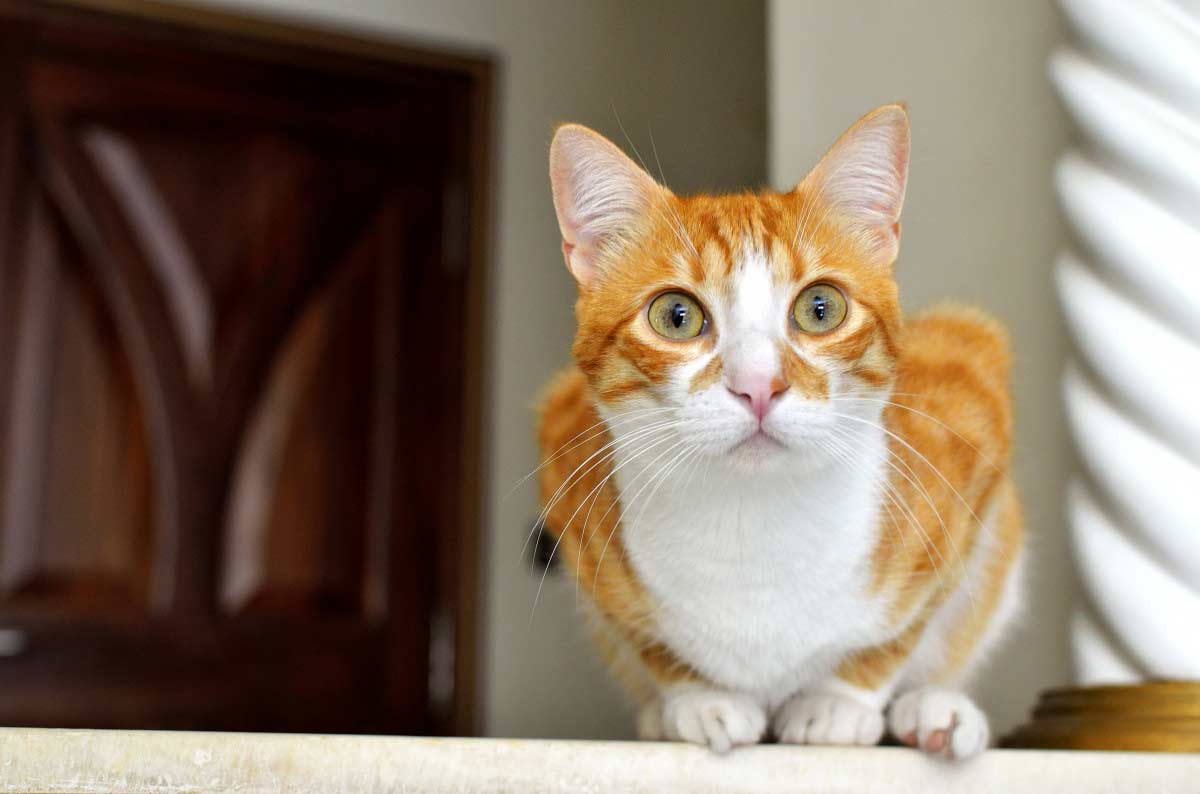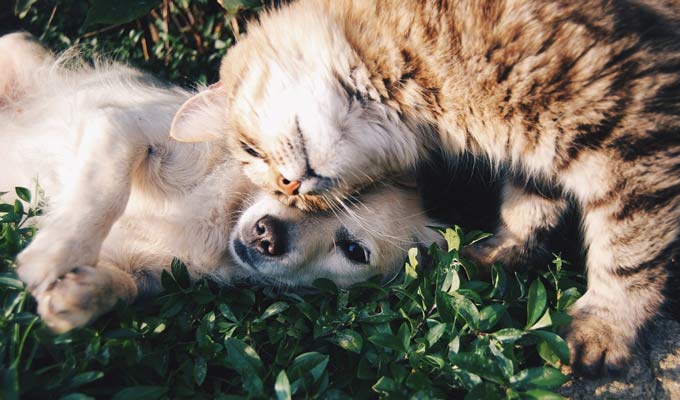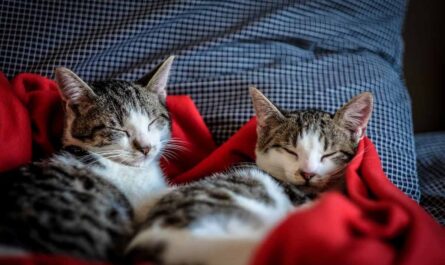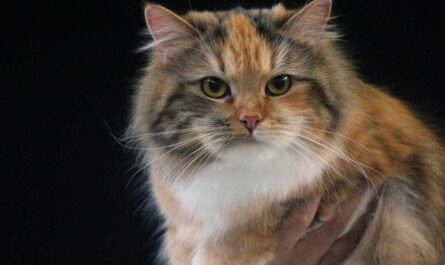What are some things you should NEVER do to your pet cat? Caring for a pet cat requires responsible ownership and a deep understanding of their needs. Several things should never be done to a pet cat to ensure their well-being and happiness. First and foremost, never neglect regular veterinary care. Cats require routine check-ups, vaccinations, and preventive treatments to maintain good health. Avoid feeding your cat an improper diet, as certain human foods can be toxic to them. Chocolate, onions, garlic, and caffeine are among the substances that can be harmful.
It is crucial never to declaw a cat, as this procedure is painful and can lead to long-term physical and behavioral issues. Similarly, never use physical punishment as a means of discipline. Instead, employ positive reinforcement techniques to encourage good behavior. Never leave dangerous substances accessible, such as household cleaners, medications, or toxic plants, as ingestion can be fatal. Cats should not be allowed outdoors without supervision to protect them from potential dangers like traffic, predators, or disease.
Things You Should NEVER Do To Your Pet Cat
Never ignore signs of illness or distress. Cats are masters at hiding discomfort, so it’s essential to be vigilant and seek veterinary attention promptly if any abnormal behavior or symptoms arise. In essence, responsible pet ownership involves avoiding these harmful actions to ensure a safe, happy, and healthy life for your feline companion. Here is a list of things you should NEVER do to your pet cat:
1. Impose Physical Punishment: Nurturing Over Cruelty
Physically punishing a cat through actions like hitting or kicking not only reflects cruelty but also proves to be an ineffective strategy for behavior modification. Beyond the immediate harm it inflicts, such methods can inflict lasting damage to the bond between the cat and its owner. The use of physical force creates an environment of fear and anxiety, undermining the trust essential for a healthy human-feline relationship. Employing alternative, humane methods is not only kinder but also more successful in fostering positive behavioral changes.
2. NO Gentle Grooming: A Ritual of Tender Care
Grooming, far from being a task of inconvenience, should be regarded as a tender ritual that enhances the bond between the feline companion and the owner. Harsh grooming methods, marked by excessive force or inappropriate tools, can transform this otherwise pleasant experience into a distressing ordeal for our cats. The discerning pet owner recognizes the significance of using the right grooming tools, employing a gentle touch that avoids any undue pulling or tugging on their fur. In cultivating an atmosphere of care and gentleness during grooming, we not only maintain the physical well-being of our cats but also fortify the emotional connection, creating a positive association with the grooming process.
3. No Sonic Sensitivity: Shielding Cats from Auditory Assaults
Cats, with their acute senses, are particularly susceptible to the jarring impact of sudden loud noises, fireworks, or large gatherings. Exposing them to such stressful situations without mitigation can induce fear and anxiety, adversely affecting their well-being. A responsible cat owner takes proactive measures, recognizing the need to provide a haven for their feline friend during tumultuous events. Establishing a secure hiding spot shields them from the auditory assaults, offering solace and tranquility amid the cacophony, reinforcing the bond of trust between owner and cat.
4. Behavioral Barometer: Deciphering the Language of Change
Communication with cats transcends the spoken word, relying on the subtleties of behavior as their language of expression. A vigilant cat owner understands the significance of observing and interpreting alterations in their furry companion’s conduct. Changes in eating patterns, variations in sleeping habits, deviations in litter box routines, shifts in vocalizations, or alterations in activity levels all serve as vital indicators. Ignoring these nuanced signals could be detrimental to the cat’s health and well-being. The astute pet owner embraces the responsibility of keen observation, promptly addressing any deviations and, if necessary, seeking professional guidance from a veterinarian. In doing so, they safeguard the holistic health of their feline companion, ensuring a thriving and communicative relationship.
5. The Social Imperative: NO Regular Interaction for Feline Well-being
Cats, despite their reputation for independence, are inherently social creatures with a profound need for regular interaction and attention. Leaving them alone for extended periods can inflict a toll on their mental and emotional health. As responsible stewards of feline companionship, it is imperative to acknowledge this social imperative. Consider the utilization of pet sitters or automated feeders as thoughtful solutions, mitigating the effects of prolonged absence. The conscientious cat owner understands that nurturing a cat’s well-being involves not only meeting their physical needs but also fostering an environment rich in social engagement, ensuring a fulfilled and contented feline companion.
6. NO Prudent Nutrition: Steer Clear of Toxic Human Foods
Culinary indulgence can be a shared joy between humans and their feline companions, but caution must be exercised to safeguard the health of the latter. Some seemingly innocuous human foods can pose serious threats to a cat’s well-being, including chocolate, onions, grapes, and dairy products. The prudent pet owner undertakes diligent research, acquainting themselves with the culinary minefield that endangers their furry friend. Opting for cat-specific food becomes not just a dietary choice but a crucial step in preventing potential toxicity and ensuring a diet tailored to meet the specific nutritional needs of these enigmatic and delightful creatures.
7. Not Showing the Respectful Interaction
The allure of cuddling and playful interaction with our feline companions is undeniable, yet it’s imperative to acknowledge and respect their autonomy. Attempting to force a cat into unwanted social engagements is a disservice to their inherent need for space and independence. A discerning cat owner comprehends the delicate balance between companionship and solitude, allowing their feline friend the freedom to dictate the terms of interaction. Patience becomes a virtue as we let our cats approach us on their terms, fostering a bond built on trust and mutual understanding. This nuanced approach ensures that the relationship between pet and owner thrives in an environment where the cat’s autonomy is revered, and interactions become meaningful expressions of shared affection.
8. The Pitfalls of Yelling: Futility in Feline Communication
Yelling or screaming at a cat, contrary to some beliefs, serves as a futile means of communication. Cats do not comprehend such vocal expressions in the way humans might intend, and instead, it induces stress and anxiety in feline companions. Recognizing this communication gap, it becomes crucial for cat owners to shift towards positive reinforcement training methods. By utilizing positive reinforcement, one can encourage desired behaviors and strengthen the human-feline connection without subjecting the cat to unnecessary stress or confusion.
9. The Perils of Declawing: Akin to Fingertip Amputation
Declawing, a seemingly innocuous term, conceals the grim reality of a painful and wholly unnecessary surgery inflicted upon our feline companions. This procedure involves the removal of the last bone from each of a cat’s toes, an act akin to amputating our fingertips. The pain and trauma endured by the cat during and after this process cannot be overstated. As responsible pet owners, it is imperative to shun this practice and seek alternative scratching solutions that prioritize the well-being of our cherished feline friends. Engaging substitutes such as scratching posts and redirecting their natural behavior not only preserves their physical integrity but also fosters a harmonious coexistence.
10. NO Pest Control: A Cat-Centric Approach
The quest for a pest-free cat should be undertaken with utmost care and consideration. Not all flea and tick treatments are created equal, and some may harbor harmful consequences for our feline friends. A judicious cat owner acknowledges the importance of consulting with a veterinarian to select a treatment specifically formulated for cats. Prioritizing the safety and well-being of the cat over expediency ensures that the chosen product not only effectively addresses the pest issue but does so without compromising the health of our cherished companions. In navigating the realm of pest control, the discerning cat owner remains steadfast in their commitment to feline welfare.
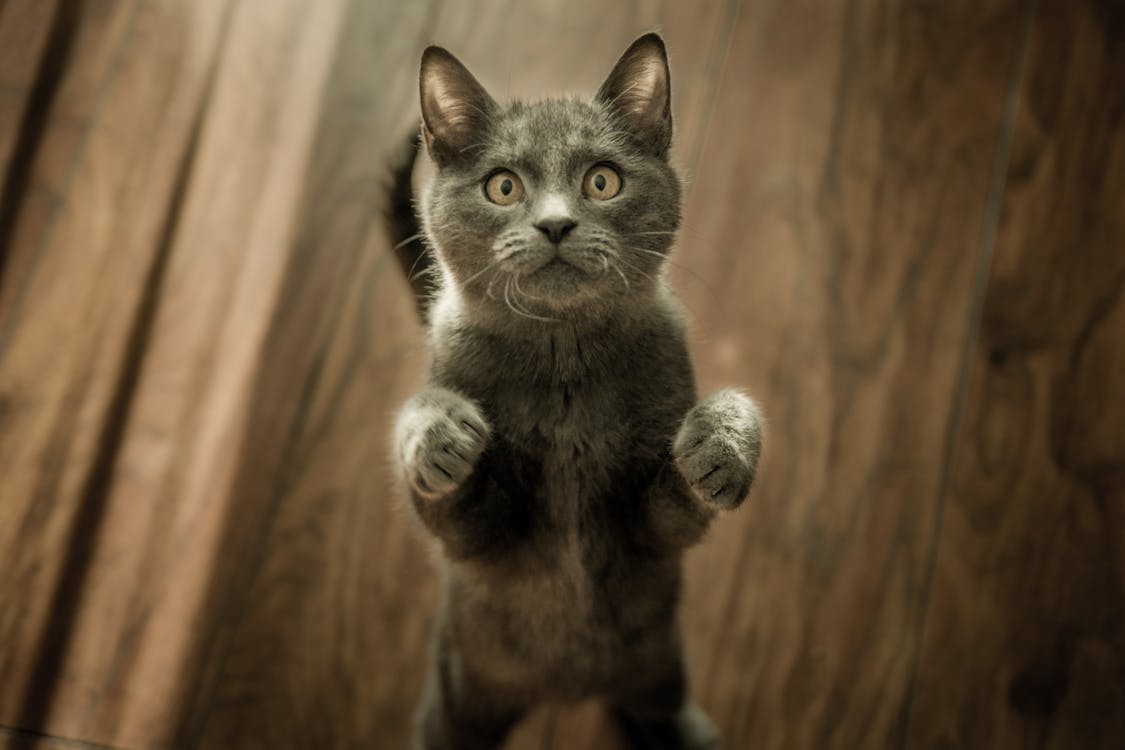
11. Bathing Balancing Act: Not Preserving Skin and Fur Health
Cats, revered for their meticulous grooming habits, necessitate baths only in exceptional circumstances. Excessive bathing, while well-intentioned, can inadvertently inflict harm upon their delicate skin and fur. The discerning cat owner recognizes the fine line between cleanliness and potential detriment, understanding that the cat’s innate grooming prowess is generally sufficient. A judicious approach to bathing, reserved for specific situations, ensures the preservation of their skin’s moisture and the luster of their fur, promoting a harmonious balance between hygiene and the cat’s natural self-care abilities. How AI, ChatGPT maximizes earnings of many people in minutes
12. The Play Paradox: Not Navigating Toy Safety
Playtime, a cornerstone of feline joy, must be orchestrated with meticulous consideration for toy safety. Not all playthings are created equal, and some harbor hidden perils for our cherished companions. Sharp edges, small parts posing choking hazards, and strings that could be inadvertently ingested represent potential dangers. The astute cat owner assumes the role of a vigilant supervisor during play, eschewing toys with unsafe attributes. Opting for safe, engaging alternatives tailored for feline enjoyment ensures that playtime becomes a source of joy and mental stimulation without compromising the well-being of our furry friends. In the realm of play, the watchful eye of the owner becomes the linchpin in fostering a secure and enjoyable environment for their feline companions. Motivation – Mind – Success – Thinking – Productivity – Happiness
13. The Safety Conundrum: Not Navigating the Great Outdoors
The allure of the great outdoors is undeniable, yet for cats, it harbors a myriad of potential dangers. Allowing cats to roam freely exposes them to a host of risks, including accidents, territorial skirmishes with other animals, and the insidious threat of diseases. A conscientious cat owner weighs the freedom of outdoor exploration against the perilous realities that accompany it. Choosing to keep a cat indoors becomes a deliberate act of safeguarding their safety and well-being. This decision, while limiting their physical range, serves as an unequivocal testament to the commitment of the owner to providing a secure and protected environment for their feline companion.
14. Dental Diligence: Not Nurturing Oral Health in Cats
Within the spectrum of feline well-being, dental care emerges as an often-neglected facet. The conscientious cat owner recognizes the pivotal role that regular dental hygiene plays in preserving their companion’s overall health. Routine dental care should be seamlessly integrated into the cat’s healthcare regimen, with annual vet checkups serving as opportune moments to discuss and implement effective strategies. A collaborative dialogue with the veterinarian unveils options for maintaining optimal oral health, ensuring that the cat’s teeth remain a stalwart pillar of their holistic well-being. Business – Money Making – Marketing – E-commerce
15. Weight Wisdom: Not Showing Balancing Act for Fitness
In the delicate dance of feline fitness, weight management stands as a linchpin against a host of potential health issues. Obesity, a prevalent concern, can unleash a cascade of complications in cats. A vigilant cat owner assumes the responsibility of monitoring their feline friend’s weight, navigating the delicate equilibrium between portion control and nutritional sufficiency. The provision of ample opportunities for exercise becomes paramount, forging a lifestyle that harmonizes with the cat’s natural need for physical activity. Neglecting their weight management is akin to compromising their vitality; thus, the astute owner dedicates themselves to the delicate balancing act that ensures their cat’s enduring health and well-being. Health books, guides, exercises, habits, Diets, and more
16. Not Keeping Litter Box Hygiene
The often-overlooked aspect of cat ownership, litter box hygiene, emerges as a critical determinant of a cat’s overall happiness. A clean litter box is not merely a luxury but an absolute necessity. Regular scooping of the box, coupled with the frequent replacement of litter, constitutes a fundamental responsibility. Imagine the discomfort and distress a cat experiences when faced with an unsanitary environment. Swift and proactive measures in addressing any litter box issues become paramount, ensuring that the cat’s basic needs are met and their living space remains conducive to their physical and mental well-being. The conscientious cat owner recognizes that maintaining a pristine litter box is a testament to their commitment to fostering content and healthy feline companions.
17. Flora Vigilance: Not Shielding Cats from Toxic Foliage
The verdant allure of houseplants can be deceptive, concealing potential perils for our feline companions. A plethora of common houseplants harbors toxicity that poses a grave threat to cats. The vigilant cat owner immerses themselves in thorough research, identifying and promptly removing any flora with harmful properties from the home environment. This botanical purview becomes a proactive measure, erecting a safeguard against inadvertent feline exposure to toxic plants and fostering an environment where both greenery and feline well-being coexist harmoniously. Fitness – Meditation – Diet – Weight Loss – Healthy Living – Yoga
18. Medication Prudence: Not Seeking Professional Counsel
The labyrinth of feline health demands a cautious approach when it comes to medication. Human medications, even seemingly innocuous over-the-counter varieties, can wield unforeseen dangers for cats. A responsible cat owner refrains from administering any form of human medication without the sage counsel of a veterinarian. The nuanced nature of feline physiology requires tailored medical solutions, and the veterinarian becomes the trusted guide in navigating this terrain. This commitment to medication prudence is not just a safeguard against potential harm; it manifests as an unequivocal testament to the owner’s dedication to the health and welfare of their feline companion. RPM 3.0 – 60% CONVERSION & Money for Affiliate Marketing
19. NO Timely Care: A Crucial Lifeline for Feline Well-being
In the intricate tapestry of feline care, the promptness of veterinary attention emerges as a vital thread. Signs of illness or injury in cats should never be relegated to the realm of neglect. The discerning cat owner remains attuned to subtle changes in their companion’s health, promptly seeking veterinary care for any concerns that arise. This proactive approach becomes a lifeline, ensuring that the cat receives the timely and tailored treatment essential for their well-being. In the narrative of feline care, the commitment to swift veterinary intervention stands as a testament to the owner’s dedication to the health and happiness of their cherished feline friend. Cat accessories on Amazon
20. Beyond Pet Status: Not Respecting the Feline Individual
To categorize cats merely as “pets” is to overlook the profound depth of their nature. Cats, sentient and perceptive beings, transcend the conventional label of mere companions. The astute cat owner recognizes and honors the individuality of their feline friend. Beyond being sentient beings, cats possess unique needs, personalities, and sensitivities. To respect them as individuals is to provide an environment rich in understanding, care, and love. It is an acknowledgment that each cat is a singular entity, deserving of tailored attention and an environment that nurtures their distinct characteristics. The relationship between owner and cat, thus, transcends the conventional boundaries of pet ownership, evolving into a symbiotic connection grounded in mutual respect and genuine companionship.
Other Interesting Articles
- How to Stop A Cat from Spraying after Neutering: 11 Tips
- How to Tell if A Cat is in Pain from Arthritis: How to Help
- 14 Reasons Why Is My Cat Making Weird Purring Noises
- How to Take Care of A Kitten without A Mother: 21 Tips
- What Is Caterwauling? 10 Most Common Reasons Cats Do It
- How to Introduce A Cat To A New Home When Moving?
- Cat Declawing: Tips, FAQs, Health, Alternatives, Pros, Cons
- New Cat? 20 Common Warning Signs When Introducing Cats
- 23 Sure Signs Your Cat May Be in Pain and How to Help It
- How to Stop A Neutered Cat From Spraying: 15 Simple Tips
- 12 Signs Your Cat May Require a Feline Companion
- Feline Pheromones: 12 Ways Calming Cat Pheromones Work
- Do Cats Feel Lonely without Other Cats? 6 Signs of Loneliness
- 10 Reasons Why Cats Hiss: How To Stop The Behavior
- Cat Feeding: Tips, Guide, FAQs, Chart for Kittens to Veterans
- Cat Vaccinations: Schedule, FAQs, Side Effects, and Costs
- 44 Strange, Weird, and Random Cat Behaviors Explained
- 21 Pro Tips for Fostering Kittens: Essential Care Guide
- 18 Cat Sounds Your Feline Makes: What They Mean
- Sexing Kittens: How to Tell, Determine the Sex of Your Kitten
